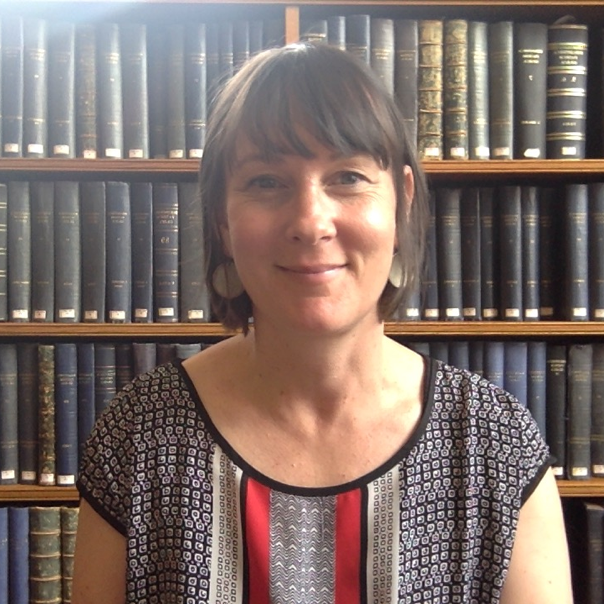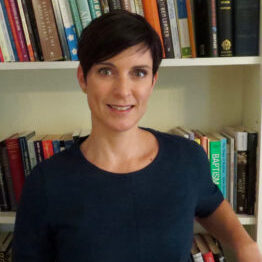Episode Transcript
[00:00:05] Speaker A: You're listening to by the well, a lectionary based podcast for preachers recorded on the land of the Wurundjeri people.
Hello, I'm Robyn Whitaker.
[00:00:18] Speaker B: I'm Dorothy Lee.
[00:00:20] Speaker A: And this is the fourth Sunday of Easter season and in some traditions it's known as Good Shepherd Sunday. And that will become apparent why in a moment.
Today we're going to discuss John 10, 22, 30 and bringing in Psalm 23 alongside that, and then Revelation 7, 9, 17 and Acts 9, 36, 43.
So, Dorothy, let's start with the gospel and this famous passage, I think from John 10.
What do we need to know about what's going on here? Because we've jumped back, we've been in resurrection stories, and now we're back in chapter 10 of John.
[00:00:58] Speaker B: Well, it's. It. This is not actually the parable itself of the good shepherd of the sheepfold, as. Which is John 10, 1, 21.
That's perhaps what we might expect to have. We have the dialogue that follows on from that, from that parable of the sheepfold. And. But there's a reference to it in verses 26 to 29. We come back to the image of the shepherd. And, and it's set within the context of Hanukkah, the, the feast of dedication.
And, and that's part of a whole theme throughout John 5 to 10 of the. The feasts of the Jews, as John calls it. And there's the feast of explicitly the feast of tabernacles, possibly Pentecost, certainly Tabernacles, Passover, and now Hanukkah. And in all of them, John is trying to say that Jesus fulfills, doesn't supersede, but fulfills those feasts in the Old Testament, in the Hebrew scriptures. And dedication is about renewal. Of course, that's what the word literally means in Greek, the word in Kyneia.
It's about renewal. It's about Jesus, the one who dedicates himself totally to God and in doing so acts as shepherd. So it's picking up the shepherd imagery. It doesn't pick up the imagery of the gate in John 10 in the parable, but it does pick up the imagery of the shepherd. And I think there's.
In the parable itself, I think it's important to, in preparation to read through the parable and remind ourselves what's in it. But the image of the shepherd is particularly, is associated not primarily with pastoral care, but primarily with death and resurrection. So why is the shepherd good, the model shepherd? Because he's prepared to lay down his life and take it up again.
And that's the kind of primary note about the shepherd. The gate is much more of an image of pastoral care than the shepherd. So of course the shepherd is caring and it is deep, at a deep level, pastoral care. But the shepherd shows pastoral care in being prepared to die for the sheep and being prepared to rise for them. And that in our passage then becomes the image of the shepherd as, as guide and as protector. Yes, as protector. That's really, really important.
And there's a whole theme of belonging that, that is in, in terms of the sheep within the sheepfold. They recognize, they follow, they hear, they belong.
And, and I think Mary Magdalene is a wonderful example of that in John 20 because Jesus calls her by name Mary. Yes. And shows that she belongs in the flock of the good shepherd.
[00:04:09] Speaker A: Yeah, Picking up on that. You know, my sheep, hear my voice, I know them and they follow like that. This is the intimacy of. They know each other. There's a relationship there.
[00:04:19] Speaker B: Yep, very strong intimacy there. And, and Jesus death and resurrection, he's particularly. His resurrection is protective for the sheep. That's how much having loved his own who were in the, in the, in the world, he loved them to the end. John 13 says that's the extent of, of the love of Jesus, the love of the shepherd for the flock. And that's set over against hostility of the, the establishment leaders in, in this who make an attempt to stone him at the end of our passage and again will later on in the same chapter will also try to lay hands on him.
[00:05:02] Speaker A: Yep. Yes.
[00:05:03] Speaker B: So there's this escalating hostility that is happening that indicates of course, the, the coming death of Jesus. But there's also this language of non belonging hostility is itself a sign of not belonging to the sheep, to the sheepfold.
[00:05:20] Speaker A: Yeah. There's a clever kind of, you know, this is framed with hostility. If you are, if you are the Messiah, tell us plainly and in some way Jesus answer is. Well, you would already know that if you belong to the flock.
[00:05:34] Speaker B: Yes.
[00:05:34] Speaker A: You know, because, because of this relationship with the sheep and, and the very big claim at the end that the Father and I are one.
[00:05:43] Speaker B: Yes.
[00:05:44] Speaker A: You know that in, in being this kind of shepherd and, and what he offers the sheep, Jesus is being here like God is. And of course that does link us into Psalm 23 with the Lord is my shepherd.
[00:05:57] Speaker B: Yes. Excited.
[00:05:58] Speaker A: This is an image for God in the Hebrew Bible and with some similar themes of life, of, of walking through dangerous times. You know that this language we have in John's Gospel of no one can snatch. Snatch these out hands.
I offer them eternal life. I don't think we have quite eternal life going on in Psalm 23. I think it's a different understanding of more that God journeys through the valleys of life with you. Yes.
[00:06:26] Speaker B: This.
[00:06:27] Speaker A: This, you know, I don't fear because God is with me, says the psalmist. Not because God will snatch me away, but God is with me in the valleys and ultimately leading me to cool waters. And.
[00:06:40] Speaker B: Yeah, which is. Picks up some of the gate imagery of the. The parable itself.
And also, I think, in the Hebrew scriptures, shepherd imagery is quite common in relation to Israel, and it relates actually to sovereignty, to the divine sovereign.
Kings and queens could be referred to as shepherds in the ancient Near East. So it's an image that implies authority, too. And Jesus says, within the parable itself, I have authority to lay down on my life. I have authority to take it up again. And it's this authority that is so profoundly protective of a vulnerable community.
[00:07:26] Speaker A: Yeah. So, I mean, I'm hearing in what you're saying, Dorothy, it's taking us away from some of those biblical images we might have of sort of shepherd boys that are all quite sort of.
I don't know, it's a very pastoral image. And, of course, young boys probably were used to help with the shepherding, but actually there's. It's a bigger image going on here because there is authority. There's this element of fierce protection against enemies. Like, we know shepherds would have had to ward off wolves and foxes and anyone else going after the little lambs.
And also a kind of the pastoral element of knowing the flock.
[00:08:07] Speaker B: Yes, I think so. And I think that there's a sense of justice in here, too. You know, there's. There's a challenge, I think, to our society about who really belongs. It's not so much us and them. We have a little holy huddle, but it's the behavior of people that shows that they don't belong.
Particularly behavior on the part of leaders. And there are enough leaders in the world at the moment who are verging on madness.
[00:08:33] Speaker A: Yep.
[00:08:34] Speaker B: And who are actually showing that they do not belong because they are not trying to protect vulnerable people. On the contrary, they're actually bashing them.
[00:08:43] Speaker A: Yes. Yeah. No, that's a good. A good link into our contemporary world, because I think if we can understand the fullness of this shepherd image, it is an image of leadership. Yes, it is.
That is a good one by which to measure, you know, those who would put themselves Forward by leadership and whether that's a archbishop or a prime minister or anything else.
[00:09:08] Speaker B: Yes.
[00:09:08] Speaker A: You know, is this the kind of leadership in the manner of Jesus we're seeing?
[00:09:12] Speaker B: Yes, exactly. And. And I mean, a great shepherd has just died, you know, in the world.
[00:09:19] Speaker A: Yes.
[00:09:19] Speaker B: Who's Pope Francis, who was, you know, admired by so many and who did attempt to live a simple life, a life of justice, a life of concern for the poor, who. Who did try to reflect Jesus own shepherding, which is what we're all called to do, especially our leaders.
[00:09:38] Speaker A: Yeah. And that attentiveness to the vulnerable and.
[00:09:41] Speaker B: Yeah, absolutely.
[00:09:42] Speaker A: I think that's right.
Okay, let's move on to Revelation then.
[00:09:53] Speaker B: So this is a.
I mean, I'll leave you to speak about this, but it is between the opening of the sixth and seventh seals.
[00:10:02] Speaker A: Yes.
[00:10:02] Speaker B: Of the scroll which we encountered last week.
[00:10:05] Speaker A: Yep.
[00:10:06] Speaker B: In our reading. But so I have. I have a question for you here. Oh, dear. We talked. You talked last week about how the.
The four living creatures symbolize creation and the. The elders symbolize sort of Israel, church, humanity.
So who are these other people? I mean, this whole crowd of people. Who are they? And why are they dressed in white?
[00:10:30] Speaker A: Yeah, yeah. So we've got a few different groups going on here. And I mean, one way to think of Revelation is it is a very multimedia kind of show. So we're giving glimpses of almost different scenes. It's almost like opening a door and looking in that room and going, oh, what's going on over there? So at the start of chapter seven, and I think there's two different things going on there. We meet the 144,000 who are sealed. Again, I think there's some 12 times 12 stuff going on there with tribes of Israel and 12 apostles. And we get tribes named in what follows.
That's a specific scene about those who are marked as protected from the judgments of God. I think when we get to chapter seven, verse nine, we get, you know, and after this, I looked, I saw and I looked, which is a marker in Revelation of a kind of a new scene. So I'm now looking over here. And now we see a great multitude. And it's possible these have always been in the throne room and we just haven't noticed them before.
Or it's. It's an. It's an expanding throne room. I've been rereading C.S. lewis's the Last Battle, which is the last of the Narnia books. And there's a great line in there about that. The true narnia Once you enter this sort of afterlife world, which Lewis thinks is the real world, there's a line that a few times it says it's bigger on the inside than the outside. Like, once you get in, it keeps expanding.
[00:11:55] Speaker B: Yes.
[00:11:56] Speaker A: And I think there's something like that going on here that's rather lovely. He's now noticed this great multitude, and I think they do represent the Resurrected.
So we're getting a glimpse of those who've already died in the faith, who are. So this is one of the lovely things in Revelation. It's. It conflates time. I don't think we need to take it too literally, but it's almost like saying you can glance up to heaven now and the Resurrected are already up there celebrating. We don't have to wait for the end of the world for that.
[00:12:26] Speaker B: Yes.
[00:12:26] Speaker A: For them, Resurrected life is already a reality.
And the one thing. This is also a bit of a hint. I think this scene functions as a foretaste to the New Jerusalem, which we'll get to in a few weeks in chapters 21 and 22, because we get very similar language used here. So this multitude is made up from every nation, all tribes, all peoples and languages. So it's this multicultural, diverse crowd of people. And we'll get that. That's true in the New Jerusalem.
[00:12:58] Speaker B: Not all white.
[00:12:59] Speaker A: They're not all white. They're not all men. Which is worth pointing out. That might seem obvious, but there are ancient Christian texts beyond the Bible, early Christian texts, that speculate about what resurrection life is like. And in some of them, they say, well, everyone will get turned into men because that's the perfect male.
[00:13:19] Speaker B: Can't wait.
[00:13:20] Speaker A: Can't wait. I don't know if I want. Exactly. Enjoy your privilege. That's coming.
But so, you know, within its cultural landscape, it is quite radical that that's not conflated down to uniformity that we sometimes see.
They have palm branches that might remind us of Palm Sunday. This is a kind of a peaceful crowd of rejoicing and the robes in white. Again, white is the symbol of new life.
I'm trying to resist saying the word purity. It's more about being cleansed, being washed. So possibly a symbol of baptism.
[00:13:58] Speaker B: Yes.
[00:13:58] Speaker A: But also of resurrection, of a transformed life.
[00:14:02] Speaker B: Yes.
Where would you see the shepherd, given it's Good Shepherd Sunday?
[00:14:08] Speaker A: Yes.
[00:14:08] Speaker B: Where's the shepherd imagery going in that? Because we jump from lamb to shepherd.
[00:14:13] Speaker A: Yes, we do.
[00:14:14] Speaker B: It's really confusing.
[00:14:15] Speaker A: It is. So Jesus here is the lamb. He's been worshipped as the lamb.
So I don't really know what to do with that, because. Can you be the Lamb and the shepherd?
[00:14:27] Speaker B: Technically, no.
[00:14:29] Speaker A: At the same time, I mean, other parts of Revelation, he will come with a rod and he'll rule and have all authority.
[00:14:36] Speaker B: But you'll also get married, too.
[00:14:39] Speaker A: He's also a bridegroom. It's a city. There's lots going on.
[00:14:44] Speaker B: Nothing weird about Revelation, nothing strange.
[00:14:48] Speaker A: So, I mean, all I. One way to think of it might be in the same way that Jesus in his incarnation, embraces human life, so becomes what he seeks to redeem.
[00:15:04] Speaker B: Yes.
[00:15:06] Speaker A: The shepherd becomes the lamb.
[00:15:08] Speaker B: Yes. That's a nice way of putting it, you know.
[00:15:10] Speaker A: Or is the Lamb. Yes, the shepherd? Both is the one that shepherds, but also knows what it's like to be a lamb.
[00:15:16] Speaker B: And John's Gospel uses the same imagery of lamb and shepherd, doesn't it?
[00:15:20] Speaker A: Yes.
[00:15:20] Speaker B: No.
[00:15:20] Speaker A: Yeah. Because Jesus, God, who takes away the.
[00:15:23] Speaker B: Sin of the world, but also the good shepherd. Yes.
[00:15:25] Speaker A: Yeah. So again, we get it. So we get the scene of worship. I mean, you could preach all about worship and think in your own context how our. Our worship, you know, is our worship joyful? Are we actually praising God or we just saying lots of words to one another?
You know, again, it's cosmic. We talked about this last week.
[00:15:46] Speaker B: Yes.
[00:15:46] Speaker A: We get the angels, we get the four living creatures, we get the elders. All of creation is involved here.
[00:15:53] Speaker B: But I wonder if there's also a sense that emerges at the end of that of hope, you know, that we're. We're actually in. In our worship, in worshiping God, and we're also offering a vision of hope.
[00:16:05] Speaker A: Yes.
[00:16:06] Speaker B: Which comes of a world where there's no more tears, there's no more pain, no more suffering.
[00:16:11] Speaker A: Yeah.
[00:16:11] Speaker B: I mean, and living waters, you know.
[00:16:13] Speaker A: Yes.
[00:16:14] Speaker B: So beautiful.
[00:16:15] Speaker A: Yeah. And again, this is this foretaste of what will be declared more fully in the new Jerusalem, where there, too, we're told, there's no more tears, there's no more pain, there's no more suffering. So we're getting a glimpse of. That's already a reality for those who've died.
So. So pain is transformed.
We do have this image, I know some people find it really problematic of robes washed in blood of the Lamb.
You know, I think it is a nod to Jesus death and to the paradoxical, like we get in a lot of the Gospels, where the thing that should make the thing unclean actually cleanses it.
[00:16:53] Speaker B: Yes.
[00:16:54] Speaker A: And. And to go back to your question of shepherd, at the very end of our chapter we have. The Lamb is declared the shepherd.
[00:17:00] Speaker B: Yes.
[00:17:01] Speaker A: So the one that's from the flock is the one who shepherds the flock. So we've got to, again, hold both those things.
[00:17:07] Speaker B: It's a paradox, isn't it? Yes, yes. It's wonderful, actually. Yes.
[00:17:12] Speaker A: So lots to play with there and lots more we could say. But I think the hope is really important.
I think, you know, the other thing to think about in terms of contemporary worship is, you know, in what way does our worship take us beyond ourselves? So this is. This is glimpsing both another sort of space, if you like, and another time. It's. It's taking us beyond the here and now.
[00:17:44] Speaker B: And the Orthodox have a. There. The Eastern Orthodox have a very strong sense that that's what worship is doing.
[00:17:49] Speaker A: Yes.
[00:17:50] Speaker B: It's taking us into the heavenly realm, into the heavenly temple. But I think a lot of our worship, speaking as an Anglican, is. Is. Is quite banal. There's no sense of transcendence. There's no sense of being taken up beyond, beyond ourselves.
I mean, we. We need to sort of be encountering the holy, don't we, in worship the one who is truly worthy of our reverence.
[00:18:16] Speaker A: Yes.
[00:18:16] Speaker B: And there needs to be a sense of awe. Not. Not fear in the negative sense, but a sense of awe that I think needs to be at the heart of it. Solemnity, dignity.
[00:18:27] Speaker A: Yeah, I. I agree. We often lose the sense of transcendence and even this sense that when we worship, we are participating in a cosmic worship that's going on. So whether that's on a Sunday morning, sometimes I like to stop and actually remind myself, on a Sunday morning, there are literally hundreds of thousands, if not millions of Christians worshiping in all sorts of different ways at the exact same time. I am.
[00:18:53] Speaker B: Yes.
[00:18:55] Speaker A: And then if you expand that in the way revelation does, there are also millions of creatures worshiping God in the heavenly, in time and space.
[00:19:05] Speaker B: Absolutely.
[00:19:06] Speaker A: And so there's a sense our worship participates in that, and that lifts us right away from being too individualistic and.
[00:19:13] Speaker B: Oh, absolutely. You know, and even too human focused. You know, it's actually. It's the whole of creation that's involved in them. Our great thanksgiving, our prayer of thanksgiving is on behalf of the whole of creation.
[00:19:27] Speaker A: Yes. As is, I think, our confession. When we do it liturgically, we don't only confess. We're never confessing just our personal sins. We're confessing for the community that stands before God. Like it's.
Yes, absolutely. And to talk like this, I just want to be clear to talk like this in terms of worship isn't a kind of a denying of the realities of life. I think one of the things that's held together in Revelation really cleverly is these saints, if we want to call them this, these. These people clothed in white have suffered. They know what pain is like. And this is precisely why the promise that there's no more tears and no more suffering is powerful.
[00:20:05] Speaker B: Yes, it is.
[00:20:05] Speaker A: It's not a denial of those realities.
[00:20:08] Speaker B: No, it's not. It's. Yeah, it's justice, actually, for those who suffered. Yes.
[00:20:12] Speaker A: Yeah. So lots to play with there, but shall we move on to Acts 9 and then we'll draw this together?
If you'd like to know more about by the well or any of our hosts, please visit bythewell.com au so Acts 9. 36, we go to Joppa and to a woman called Tabitha, or in Greek Dorcas, who is called a disciple.
[00:20:45] Speaker B: Yes.
[00:20:46] Speaker A: And one of the only women in Acts, I think, explicitly called a disciple.
[00:20:51] Speaker B: It's the only time we get the feminine form of the noun disciple, which can, of course refer to men or women, but this is the only time we get the feminine form mate, tria of the. The normal noun mate.
[00:21:04] Speaker A: Yeah.
[00:21:04] Speaker B: So it's kind of rather exciting.
[00:21:06] Speaker A: It is. And from what we know about her, she is a Jew. She's a Jewish woman doing good works in these communities. And I'll put a link in the show notes to a website run by a woman called Marg Moscow who does some fantastic exegetical work if you want to preach on this passage. She has lots of resources on her website going into who Tabitha is and a bit more of the traditions around this.
[00:21:32] Speaker B: I think one of the important things is that she's engaged in ministry.
[00:21:37] Speaker A: Yeah.
[00:21:37] Speaker B: And. And that ministry is caring for the poor. Widows are archetypally widows and orphans, or the archetypal in the Hebrew scriptures, poor because they're most vulnerable, they're most exposed and. And most needy. So she's these widows who are weeping and showing their clothes. They've been clothed by her. It's not that she's made them fancy dresses, she's given them basic clothing. Basic clothing. She's. She's very much embodies the spirit of the community in Acts, which is sharing possessions and caring for the poor and giving a special concern for those who are poor and needy and desperate. And here is. She's an example of that. So she's a leader in ministry in. In the community of Acts. And. And she has a really important point. And I'm really sorry that they ended up calling a box of pins Dorcas. I remember those from my childhood. I don't know if they still exist, but they did.
[00:22:39] Speaker A: Yeah.
[00:22:39] Speaker B: And it just made it out as if. She knows. She liked to do a little. She liked to sew, you know, but she didn't. She's engaged in ministry, informal ministry. And that's why they're called the big guns in while they call Peter in.
[00:22:52] Speaker A: Exactly.
[00:22:52] Speaker B: She's so important.
[00:22:54] Speaker A: Yep. Yes. So she becomes ill and died. And just before this. So the other sort of theme running through this chapter is we're going to see Peter performing a number of miracles that mimic, or parallel is a better word, the miracles of Jesus. And this is one of the points Luke is making in Acts is the ministry of Jesus continues through the Holy Spirit and the apostles. So just before this, Peter has healed a man who is paralyzed, Aeneas, and restored him. So, you know, paralleling Jesus own miracles, several of them like that. And now he'll actually raise someone from the dead.
[00:23:31] Speaker B: Yes, that's right.
[00:23:32] Speaker A: So Tabitha has died. And the fact, like you said, the fact they send for Peter in the next town, all of this takes time and a messenger and money suggests she is absolutely honored and valuable to her community. She's deemed worthy of Peter's attention.
[00:23:47] Speaker B: Yes, that's right. And notice that Peter's healing is in Jesus. Yes. I mean, he says to Aeneas, Jesus Christ heals you. And before he raises Tabitha, he prays.
[00:24:00] Speaker A: Yeah.
[00:24:00] Speaker B: So it parallels Jesus ministry, but it's in Jesus name.
[00:24:04] Speaker A: Yes, it's very clear. It's not in Peter's power.
[00:24:07] Speaker B: It's also that characteristic pairing of women and men that Luke does so much more extensively in the Gospel.
[00:24:15] Speaker A: Yep.
[00:24:15] Speaker B: So we've got Aeneas and then. And then we've got Tabitha, which again.
[00:24:19] Speaker A: Is part of Luke's more inclusive vision in a way that the, you know, the favor of God, to use that old fashioned language, the grace of God falls upon men and women equally, just as he'll show it falls upon Jews and Gentiles equally.
[00:24:35] Speaker B: Yeah. As is obvious from the Pentecost story, where there are women present as well as men, although we usually leave them out.
[00:24:41] Speaker A: Yeah. Yes.
Who needs to pay attention to the women? Dorothy? It's partly why we started a podcast that is primarily female led.
Anything else we want to say about this? I mean, so it's, it's.
[00:24:57] Speaker B: Well, I think, I think it fits in, you know, with this sort of good shepherd. I mean, Luke is Not using that imagery, but here is the good shepherd giving life, giving abundant life.
[00:25:07] Speaker A: Peter.
[00:25:07] Speaker B: Yeah, you know, through Peter, through the ministry of Peter. And. And that typifies our calling as. As Christians, as Christian leaders, as Christians involved in the church, that our ministry is also to be life givers, not death dealers.
[00:25:24] Speaker A: Oh, I like that. Yep. And so often Christians, particularly in the wider culture, are seen as the ones who bring judgment and negativity.
[00:25:33] Speaker B: Thou shalt not. Yes, yes.
[00:25:36] Speaker A: As opposed to those who bring life. And I mean, this again, takes me back to. If you're a regular preacher, you have the privilege of referring back and forth. I mean, last week we talked about Peter's commission to feed my sheep, which is to actually take on that role of shepherd.
[00:25:51] Speaker B: Yes.
[00:25:52] Speaker A: And now we're seeing Peter embody that. And that's.
[00:25:56] Speaker B: That's really important because it's evangelism, however, we want to understand it is not just about telling people about Jesus, it's actually living it. Yes, it's living the life within the community, the way. The way of life. But it's also, as we saw last week, but it's also about engaging in acts of. Of that give life. No, it's preaching without. It is empty. Seems to me.
[00:26:22] Speaker A: Yeah, I think that's right. So, Dorothy, if you were preaching this Sunday and you might be, what. What would you preach? Or how would you pick up some of the themes from these various readings?
[00:26:35] Speaker B: That's a good question. I think I would want to talk about being part of the sheepfold, about belonging and about protection, because I think people desperately need that sense of protection, though the world is a pretty scary place at the moment. And to know that we are protected, that we can belong to those who seek life, not just other Christians, but others who also seek life, who seek goodness, are also longing for the same things, that we belong in them. And that we need to take a prophetic stance against those who are hostile to. To that. Those protective values.
[00:27:17] Speaker A: Yeah, I really like that. I think for me, I mean, by the time people get to this Sunday in Australia, we're about to have a federal election. So we're recording this ahead. But by the time you get to this Sunday, we'll know who the prime minister is. But, you know, I've been struck in all the political debates similar to what you're saying, we are seeing certain vulnerable groups being vilified, and we're seeing this globally as well.
And we're seeing, you know, leaders offering, you know, tax breaks and bonuses and all the kind of things that happen before an election. All these promises that get made that are often rewarding the people who are already wealthy and well off and so.
[00:28:00] Speaker B: And appealing to people's self interest.
[00:28:02] Speaker A: Yes, yes, exactly.
[00:28:04] Speaker B: Not to their sense of protectiveness.
[00:28:06] Speaker A: Yeah. Towards the vulnerable and not towards those who are most vulnerable and who may most need to hear a word of life. But what Tabitha offers us is to a reminder that, you know, there is the miraculous action of Peter, there is the miraculous intervention of God, but there's also life that's come from her work, which is doing something so entirely practical and ordinary in a way, and yet profoundly life giving for the women who she ministers to and with.
And how we hold those things together. I think in. In terms of the communities we want to be and how we look after one another in those ways.
[00:28:43] Speaker B: And perhaps also something about, you know, we're talking about women. How. How do we protect women in a culture where this. The statistics on domestic violence are so frightening? And in protecting women, I'm sure. But the widows are also mothers of children.
[00:29:00] Speaker A: Yeah.
[00:29:00] Speaker B: You know that many of them would be mothers who are responsible for either children or grandchildren who are also needy.
[00:29:07] Speaker A: Yeah.
[00:29:07] Speaker B: And it's the same in domestic violence. It affects not only the. The women and in occasional cases, the men too, but most of the children. And the children as well.
[00:29:17] Speaker A: That's right.
Yeah. So there's lots of directions you could take this all in, whether it's through the Good shepherd image or other things, I think. Yeah.
[00:29:25] Speaker B: Yes.
[00:29:26] Speaker A: We can talk about the kind of leaders and the kind of we expect in the church and the community, but also that we're called to be in being like Jesus.
[00:29:35] Speaker B: Yes.
[00:29:39] Speaker A: By the well is brought to you by Pilgrim Theological College and the Uniting Church Church in Australia. It's produced by Adrienne Jackson. Thanks for listening.





